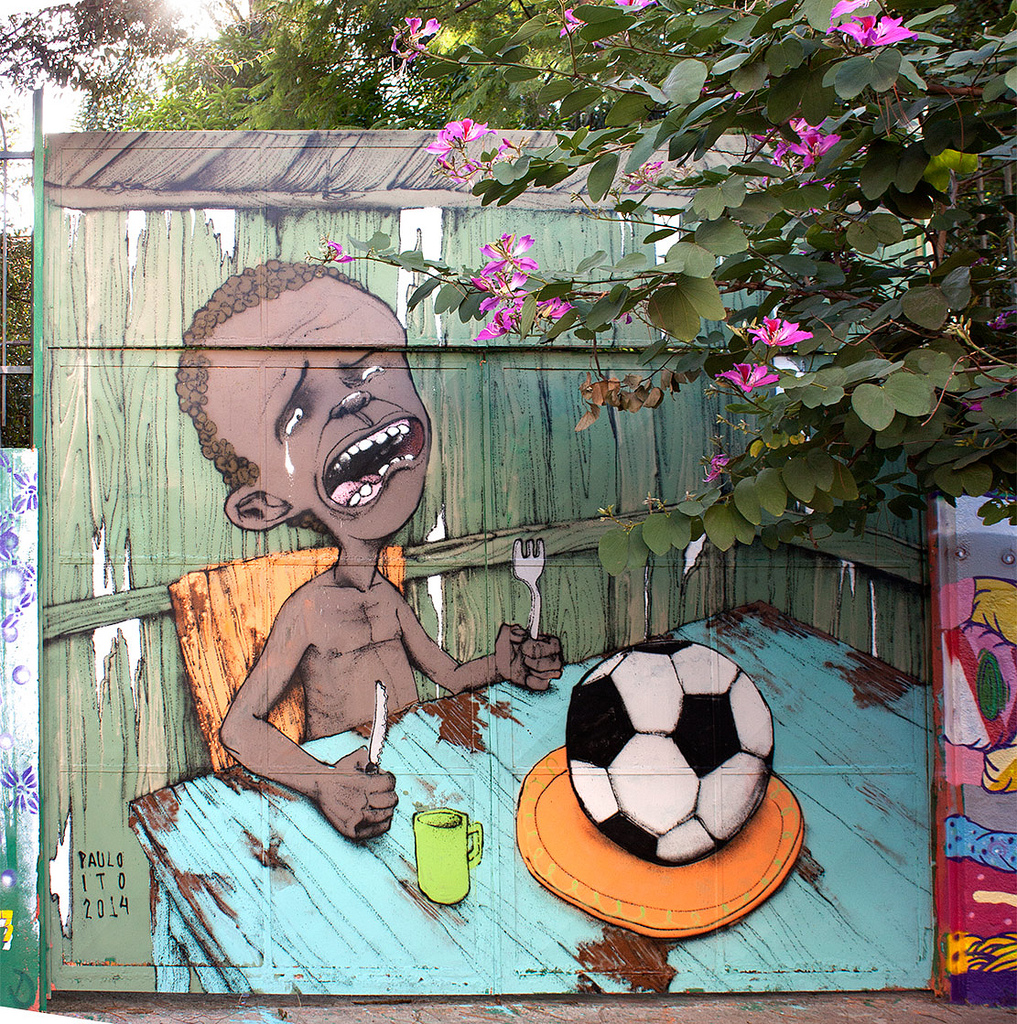Brazilian soccer national team holding the World Cup. Photo: Ben Radford \ Getty ImagesThe following is the first installment of a multi-part series by Global Exchange examining the preparations and aftermaths of the 2014 World Cup and 2016 Olympics in Brazil. “There are visible and invisible dictators. The power structure of world football is monarchical. It’s the most secret kingdom in the world.” So said the great Uruguayan writer Eduardo Galeano. Thanks to US American sports journalist Dave Zirin, the quote has been getting quite a bit of attention recently. But the power structure of world football is not the only malevolent shadow lurking in the dark today. There has been a great series of injustices secretly unfolding in Brazil ever since the South American giant won its bid for the World Cup back in 2007. Brazilian artist Paulo Ito created this mural on the doors of a schoolhouse in São Paulo. The image has since gone viral. Photo courtesy of Paulo Ito. On June 12th, the world will shift its attention and collective body clock south, with the idea that the 2014 World Cup is solely about soccer and national rivalries as…



